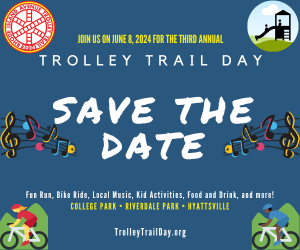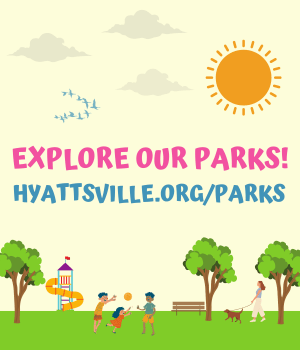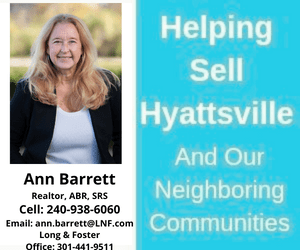By COLLEEN D. CURRAN — During its Feb. 28 and March 28 meetings, the Hyattsville Education Advisory Committee (EAC) planned for the third year of its volunteer summer reading program, which will continue offering parent workshops and will also expand to include Hyattsville Elementary School (HES).
“[The summer reading program] has been one of the best things we’ve done as a committee,” said EAC chairman Daniel Broder. “It’s just grown over the years. I’m really, really looking forward to seeing what we can do with two schools this summer.”
Once a week for the last two summers, young students have met at Rosa L. Parks Elementary School to participate in various reading activities organized by members of the EAC and school partners. This year, both Rosa Parks Elementary and HES will participate in the program, and students from Edward M. Felegy Elementary School will be able to join activities at Rosa Parks Elementary.
“I’ve really enjoyed the program,” said Margaret Featherstone, a hearing and speech sciences graduate student at the University of Maryland (UMD) and an intern with the summer reading program.
Featherstone said she especially appreciated the students’ engagement in the program and valued the chance to help them avoid a summer slump. She said volunteering for the program made her feel appreciated by, and involved in, the Hyattsville community.
Training sessions for parents were introduced last summer and were held at the same time as the student activities. This summer, interns will facilitate the parent workshops at each school.
“[Last summer] we talked a lot about literacy development in the early years, basic phonological development … communication development and red flags for communication disorders,” said José Ortiz, assistant clinical professor in the UMD Department of Hearing and Speech Sciences, who spoke during the February meeting. He helps run the summer reading program and has been working with families to address kids’ reading issues for a number of years.
“The more parent involvement that we can provide — which means more parent education, it means advocacy for the parents to empower them to feel like they have the ability to really make a meaningful difference in their children’s education achievement — the better,” said Ortiz.
Evidence shows that when parents are more involved, children show better educational outcomes, according to Ortiz.
“The parents are hungry for this information. They want to do whatever they can to be able to support their kids’ education,” said Ortiz. “One of the big things that we try to do is to make the workshop … as interactive as possible to give the parents — and this is really the key piece — one of the practical tools that they need to be able to support their children’s communication and literacy development.”
EAC members Kathy Dow-Burger and Jen Kubit said that, in addition to the parent workshops, the summer reading program will provide toys for toddlers to make the program even more inclusive and family-friendly.
Featherstone recently circulated flyers and an interest form at UMD to recruit volunteers. The EAC also opened up volunteer opportunities to Literacy Lab tutors and HES volunteers. Dow-Burger said that last year they had about eight to 10 volunteers, but will need 20 to 25 volunteers this summer to fully support the reading program at both schools.
All volunteers must be 18 or older, undergo an hour-long training and be fingerprinted. Volunteers will support students in many ways, including reading to them, helping them find books and orchestrating rhyming activities.
On April 1, the city council voted to include funding for the summer reading program in the proposed fiscal year 2020 budget. The program will begin in June, end in August and follow last summer’s model of meeting once a week on a day that will be determined by volunteer availability. In July, an Amazon book wish list will be available to the community to help fund book giveaways to summer program students.








